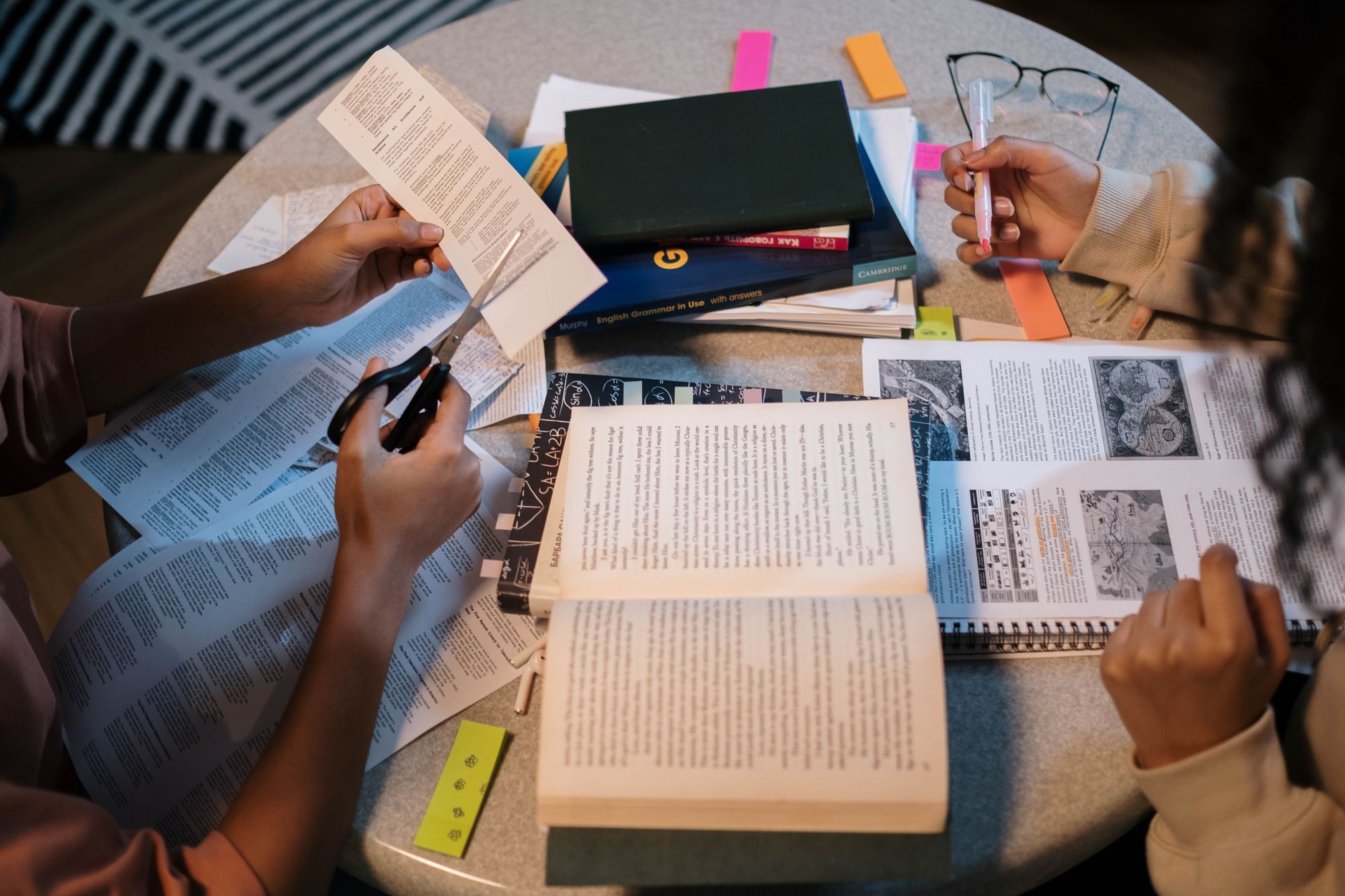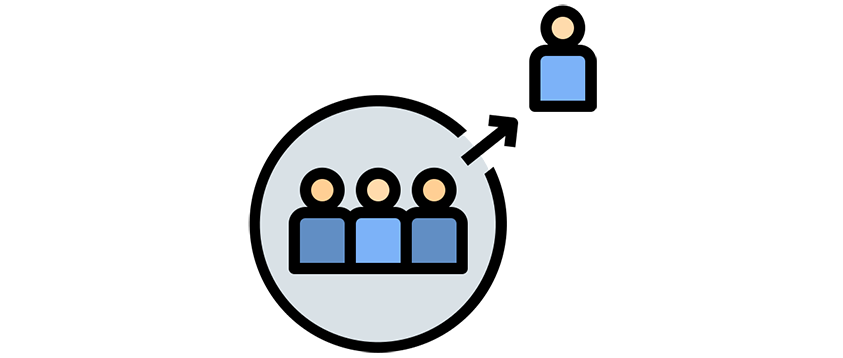Introduction 📖
I recently posted a thread on Twitter which was well-received from the audience. In this blog, I would like to highlight and emphasise each point which would get me from being a ‘C’ student in my Bachelor's to an ‘A’ student in my Master's – so buckle up! 😉
I have studied mechanical engineering at an elite university.
— Jousef Murad (@Jousefm2) February 21, 2022
Here are 10 mistakes I think every engineering student should avoid – hope it's helpful to someone!
🧵👇
Being an Engineering student is awesome – not only because you can brag at family events that π = 3 and g = 10, but also because Engineering students have a high status in society and actually change the world. Apart from all the fame you receive as an Engineer, at some point you will have to enter the job market which is a highly competitive field. The harsh truth is that a ton of aspiring Engineers either drop out, or end up in bad jobs that do not fulfill them. A good number of them even abandon their Engineering background and look for greener pastures, hoping to fit in. The cause for this behavior often simple: Bad habits you adopt during your learning years which then amplify during your studies making you believe you are not good enough for Engineering.
In this blog, I will show you the biggest mistakes a student can make during their studies, so that you can avoid them in the first place and become a high performing student and have better chances of landing your dream job and secure your career and future.
If you are a student reading my blog, no matter what you study, make sure to also check out my other articles to not miss out on any tips and to keep your "Competitive Advantage". I do not really see life or studies as a zero-sum game, but that's a discussion for another day. I simply want you to get better and avoid all the mistakes I did during my studies. I wish I avoided those during my bachelor's which would have saved me a ton of time & stress! 😓😓
Carefully read all points below and feel free to send me feedback on Twitter or Instagram, and if those tips helped you to become a better student – I would love to hear from you! ❤️
1 – Exam Night Fights 🤜 🤛
Don't think you can make up for missed (useful) lectures and exercises the night before an exam. It's pointless...except if you only want to pass. 😉
You don't want to know how often I did this in my Bachelor's....really nothing will make you do worse on an exam than pulling an all-nighter. You will stay up all night and shove everything you can into your short-term memory. And when you try this technique, get in some sleep – at least a few hours!😴
Bad sleep and mental performance are connected so you will most likely not recall everything you learned and the performance might drop even more when you sleep less – I would expect an exponential decay of performance caused by the lack of sleep.

One trick that helps prepare you is a solid and healthy breakfast for a good energy boost. As you are already in this misery, prepare yourself to do some quick and concise revision in the morning. Keep a set of summary sheets for easy reference. Do not focus so much on what you are already good at, make sure to work on your weaknesses to ensure coverage of a broad range of topics. And wear clothes that make you feel comfy (maybe your favourite shirt?). That might sound funny or irrelevant, but really has some significant psychological impact.
If you still failed the exam...it's not the end of the world. More on that at a later point.🙂
2 – Running After Marks 🏃
There's more to life than marks. Marks are important, yes. What's more important though are skills. Nobody actually cares if you're an A student and end up being bad in your proclaimed area of expertise. You can be a C student and still be skillful just through focussed effort.
My mantra: Do not aim to be the top performer in class. You set yourself up for failure before the semester even begins. Frustration and stress are guaranteed side effects of self-imposed pressure! If you are moving in the midfield and your grades are not incredibly bad, there is nothing to be worried about!
Give it a thought from a time perspective. Do you really think it makes sense to spend 3-4 weeks learning for an exam to get 10-20% better results? For some, that's worth it. For me, it definitely was not! I think it is better to invest 1-2 weeks on hard exams and use the saved time on other skills that might take you further in your career such as coding, networking, online courses, building your side hustle you have always dreamed about or work on useful projects that have not necessarily something to do with your studies. In a nutshell, think outside the box!
My favourite example is probably Steve Jobs, who took a calligraphy class in 1972 at Reed College based on campus posters he saw after dropping out. The poster fonts themselves were artistic enough to catch his eye, and he audited this class, despite knowing the class would earn him no credit towards a degree.

I cannot emphasise this enough, but a lot of students are so obsessed with marks that some even get depressed if it's not an A and even consider dropping out. The best advice I can give here is that you can be a decent student but still do great in internships and jobs, I have seen it often from my friends and colleagues, who were C or D students being extremely successful in their careers, where analytical thinking was much more important than repeating theoretical knowledge from a scripted scholastic medium of modern education.
Of course you can have good marks and be a great employee! Good marks don't come easy though. Personally, I used innovative systems & techniques that got me from a C student to an A student, such as active recall and spaced repetition!
3 – Bad Communication Skills 🗣️
Engineers are smart individuals. But, even the brightest idea is worthless if you don't know how to communicate it well. Make sure to train yourself towards clear and effective communication and presentation.
My general advice is to participate in community projects, find student groups that interest you, and make sure to take courses at your Uni to learn more about effective communication, sales tactics, the art of persuasion and in general, step outside your comfort zone. And if you have completed your degree, I generally recommend the high-quality classes from MasterClass or this book on "How To Win Friends And Influence People" – you will find more books for students in my Book Notes section of my blog.

4 – Not Doing Internships 😴
I have done a ton of jobs, specifically internships before and during my studies (feel free to check out my 20+ positions on LinkedIn). Some of my jobs are not even listed there. I started working at a very young age, such as taking inventory, washing cars, working at the Mercedes-Benz assembly line, cleaning parts for their trucks, and a lot of other work which weren’t even Engineering-related. Most importantly, that made me appreciate my studies even more and taught me how hard it can be to earn money.
For some of my Uni jobs, I was not qualified enough, but it made me find gaps in my skills-set, try to work on them and move onward. And it taught me one important thing: To always stay humble.
The more you know and learn, the more you know what you don't know! Screw those who think they know it all, please never become one amongst them!
In general, doing internships, putting emphasis on project-based learning and participating in cohort-based courses are the best ways to learn, by getting your hands dirty. Learn as much as you can in a short amount of time and prepare yourself for the future. Always, always, always (!!) make sure your supervisor or boss actually cares about you and your goals – which leads us to the next point...
5 – Not Picking a Proper Mentor 👨🏫
Picking a mentor or supervisor is essential. I have seen a ton of classmates dropping out of their thesis or project because of a bad supervisor who never replies to emails, let alone caring about goals.
Here is a small list to check if you have a good thesis mentor or supervisor:
- Answers to your requests in a timely manner
- Encourages independence in terms of scientific thought and process
- Supports your ideas, makes you think critically, encourages thinking outside the box & fosters open communication
- Ensures that your research environment is safe, equitable, and free from harassment and discrimination
- Communicates expectations regarding work habits and behavior in the laboratory
- Works closely with you to design a meaningful thesis project
- Provides consistent and constructive feedback about your practical, writing & presentation skills
- Is honest about your performance and gives actionable and constructive feedback
- Acknowledges your contributions

A good tip is to ask students or former employees who have already worked with your mentor (Testimonials!). That gives you a good impression if a collaboration is worth pursuing. And do not forget: Most of you do not even need a mentor, you need action! The best mentor cannot help you if you are just lazy!
6 – Not Socializing 🤝
Even the biggest introvert like myself eventually had to socialise for projects to make them happen. Sometimes it is necessary to force yourself into communicating with team members even if it makes you feel uncomfortable – it increases your emotional intelligence and your network.

My tip here is to leave your comfort zone and force yourself to do presentations, engage with peers on campus, be a part of networking events (those are the worst for introverts) and eventually start a YouTube channel to overcome your fear of showing yourself to the world. I know it can be very draining mentally and physically if you're not used to people around you. Start small and gradually increase the space you feel comfortable in.
7 – Join Random Courses 😕
Do not join random courses in Uni. Pick them wisely – your time is limited, and so is your brain capacity. I spent way too much time sitting in lectures that were boring and not adding any value to my life or my studies.
I recommend taking courses which don't necessarily have something to do with your studies, but as I said: pick them wisely and ideally find synergy effects. Take improv classes, communication training, a new language course or maybe a calligraphy class like Steve Jobs? Maybe an AI course even though you are not a coder or engineer? Expand your horizon!
8 – Not Coding 💻
Coding is something every engineer should be able to do, or at least hack a small prototype together. Whether it's Matlab, Python, Julia or any other language. Pick one to begin with and stick with it for a bit. My first proper language was Matlab.
For more coding experience, reverse engineering systems by picking existing code and trying to understand them can be extremely helpful to boost your coding skills, taking high-quality online courses, or reading books from Manning.
9 – Not Failing ❌ 😞
Failing is part of growing. If you fail exams, it is definitely not the end of the world. Come back stronger and make sure to have a learning group that matches your goals and don't distract you too much.
Having fun is essential – don't be too harsh to yourself❗
👉 First tip: The grass is always greener on the other side. There will always be someone smarter than you. You don’t live life as a superlative. Don’t berate yourself for having received a lower mark than your peers. Each comparison will only make you feel more miserable. You are your own benchmark. You failed this time which does not mean you fail next time, life goes on! Good preparation and a motivated learning group can help you pass any exam easily.
👉 Second tip: Your work ethic and systems can be trained and adapted. There are a lot of good courses that teach you how to learn, how methods such as active recall and spaced repetition can solidify knowledge and make you a more effective learner!
It is also important that you are honest to yourself. Is the thing you are doing really something you are interested in, or are you just pretending? If the latter one is true, definitely make sure to get a learning group. That makes learning a much more fun experience than trying to eat it all up by yourself.

As with everything in life, it is all about prioritisation. You need to have at least a little bit of motivation. Try to find other subjects that are connected to the one you have to learn. Is there anything that interests you which might have a connection to the "boring" topic you are struggling with? Whatever it takes to make learning easier, use it to your advantage.
Learn how to manage your time well, resist procrastinating and reduce friction to visit ominous pages, you will find you actually have time to complete your work to a higher standard, and become more successful. When your friends ask you for a favour which might affect your focus, say no! A no to them is a yes to you.
10 – Attending EVERY Lecture 😀 📖
It's simply not necessary. Most of the people do it to tell themselves they have accomplished something. If the lecture does not add any value, just skip it. Use the time to do some revision on other topics or meet up with your learning group!
Here's an old video where I summarise my studies in 15 minutes. A bit outdated since I already finished my studies some time ago, but it gives you a good impression of what one can expect during engineering.
Next Steps 👇
If you have any questions about my studies, write to me on my socials and make sure to share this post with your friends if it was helpful to you! ❤️
If you're interested in joining science courses or one of my cohort-based courses, where you with a group of students to advance at the same time through a 4-6 week curriculum that is specifically tailored for engineers, and has been developed with a learning specialist to make sure you get the most out of it, sign up for the waiting list below.
Normally, the cohort course accommodates between 100 to 300 students split into smaller groups who will then work on projects together. The coolest part? The best group wins prizes at the end of every cohort! 🏆
If that post was helpful to you, consider subscribing to my latest blogs, tutorials and course updates – costs you less than a Starbucks coffee! 😉
Keep engineering your mind! ❤️
Jousef

